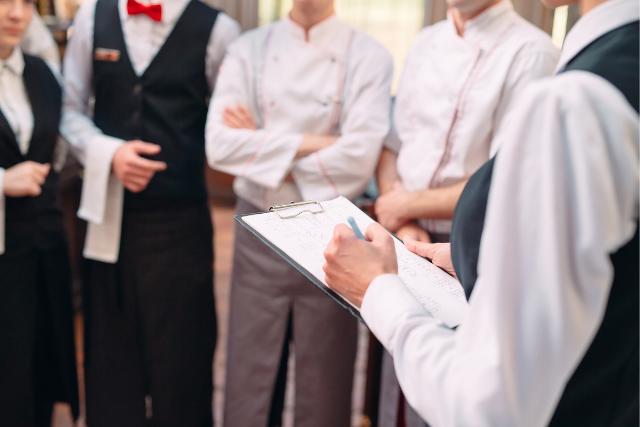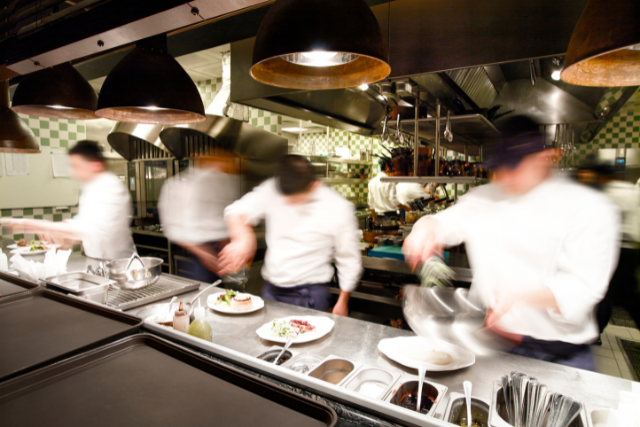
Strong industry connections support career growth in the culinary field. In Metro Manila, cooking classes offer an environment where these relationships develop through practical work and exposure to real kitchen settings.
Programs at institutions like CCA Manila are designed to reflect the pace and structure of professional kitchens. Learners engage with instructors and guest chefs who are active in the industry, creating opportunities for mentorship and future collaboration.
This article examines how structured training supports skill development and opens pathways into the culinary profession.
Working with Peers During Practical Kitchen Sessions
Culinary classes often involve group tasks where participants handle prep, cooking, and clean-up together. These shared responsibilities build working relationships and create a sense of teamwork. Many stay connected after the program, especially when they pursue group-led ventures such as catering, pop-ups, or food business startups. The structure of the course encourages collaboration, making it easier to form reliable connections with others who are serious about the industry.
Learning from Instructors with Active Industry Roles
Many instructors in culinary schools in the Philippines still work in professional kitchens or food-related businesses. They bring relevant experience and current knowledge into each session. Beyond teaching, they often refer capable individuals to job openings, apprenticeships, or freelance opportunities.
Their input also helps learners understand what hiring managers look for, making them valuable connections for anyone entering or reentering the field.
Building Industry Links Through Internships and Practicum Placements
Structured culinary courses frequently include on-the-job training as part of the curriculum. Internships and practicum assignments place participants in real kitchen settings, working alongside staff and observing professional operations. These placements often lead to useful introductions—whether to chefs, managers, or event organizers—and can result in job offers or ongoing freelance work.
Exposure to Different Career Paths Through Shared Learning Environments
Training at CCA Manila brings together a diverse group of people—some are switching careers, others already work in kitchens, and some are building their food businesses. Being in the same space as individuals at different stages gives learners a clearer view of career options and paths others are taking. This mix of experience often leads to practical conversations and connections that extend beyond the course itself.
Group Projects and Rotations That Reflect Real Kitchen Dynamics
Working in groups and rotating through different tasks is a core part of most culinary programs. These exercises build accountability and highlight how individuals perform under time and task pressure. In cooking classes in Manila, consistent performance doesn’t go unnoticed. Instructors and classmates often recommend those who show reliability and skill, opening doors to internships or job leads.
Access to an Active and Supportive Alumni Network
Established programs often maintain ties with former students; CCA Manila is no exception. Alumni who have moved into leadership roles or started businesses sometimes return to hire, offer internships, or share advice. For new learners, this ongoing connection provides insight into the realities of the industry and may lead to direct opportunities within the school’s extended network.
Shared Workspaces and Facilities That Reflect Professional Environments
Working in shared kitchens becomes part of the daily routine in a structured culinary program. These spaces require cooperation, attention to detail, and awareness of how others move and manage their responsibilities. Over time, the experience builds familiarity with kitchen operations and the people working alongside you. Respect is earned through consistency, teamwork, and the ability to adapt. In many cases, that respect leads to long-term collaboration beyond the training period, especially among those who stay in the industry.
Project-Based Learning That Mirrors Real Job Expectations
Each course for cooking often includes assignments that simulate what is expected in professional kitchens. These may involve costing recipes, managing preparation timelines, or presenting completed dishes under time pressure.
The tasks highlight how participants think, plan, and work under stress. This kind of learning offers more than technical practice—it gives instructors and peers a clear sense of how someone operates in a high-pressure setting. When others see that work being done well, it often leads to referrals or invitations to join real-world kitchen teams or projects.
Reputation Built Through Consistency and Daily Effort
In most cases, professional connections form naturally through consistent effort. Being dependable, prepared, and focused doesn’t go unnoticed in a kitchen setting. Even without directly seeking opportunities, those who commit to the work build a reputation among instructors and peers. Over time, that reputation often becomes the basis for future recommendations or introductions to hiring managers, especially in an industry where personal reliability carries real weight.
Programs from CCA Manila That Support Industry Networking

CCA Manila’s programs focus on skill development and professional exposure. Each is structured to help participants connect with instructors, peers, and working kitchens through hands-on tasks, collaborative work, and industry placements.
Diploma in Culinary Arts and Technology Management
This full-time program covers culinary foundations, kitchen operations, and management training. A required internship places participants in real kitchen settings, offering practical experience and direct contact with chefs, supervisors, and staff. Many continue to connect with instructors and colleagues after the program as they move into different roles in the industry.
Professional Chef Plus (6 Months, Part-Time)
Professional Chef Plus suits individuals balancing work and training. The flexible setup allows for steady skill-building while maintaining a link to current jobs or side projects. Participants often come from food-related fields, which makes collaboration and networking a natural part of the learning process.
Fundamentals in Culinary Arts
Focused on kitchen basics, Fundamentals in Culinary Arts provides a starting point for those new to cooking. Participants work in small groups to complete core tasks, build timing and prep habits, and observe how others approach the same challenges. Through this setting, many form professional contacts, especially those continuing into more advanced roles or training.
Fundamentals in Baking and Pastry Arts
Fundamentals in Baking and Pastry Arts centers on the practical demands of baking and pastry production. It attracts participants with various goals, from working in hotels to starting small food businesses. Alongside technical training, the course creates room for exchange—many connect over shared interests in recipe development, product testing, or business planning.
Connect with Industry Experts at CCA Manila
Professional kitchens rely on timing, coordination, and clear communication, not just technical skill. These are developed through consistent training and real experience. Programs at CCA Manila reflect that reality, combining hands-on instruction with opportunities to work alongside others already active in the industry.
Some join to prepare for a new role. Others want to build on existing experience or move toward running their own business. Whatever the direction, the right training environment helps make that progress possible. Many also form lasting connections that lead to jobs, partnerships, or future ventures.
Visit our website for program details and schedules, or help choosing the right course.
